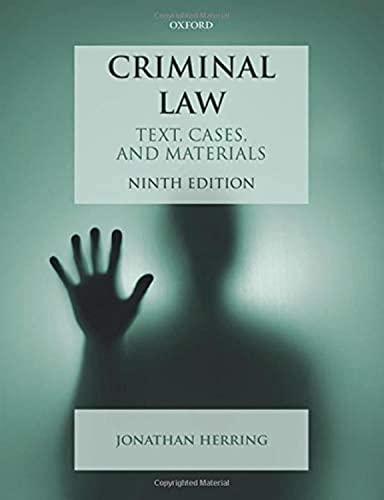Question
reword to sound different and better: The ICJ deals with contentious cases, which involve disputes between nations, and requests for advisory opinions.[1] Contentious cases begin
reword to sound different and better: The ICJ deals with contentious cases, which involve disputes between nations, and requests for advisory opinions.[1] Contentious cases begin with an application, followed by a written phase where each party presents its arguments and evidence. This is then followed by an oral phase that includes public hearings. The court then deliberates and issues a binding judgment, which cannot be appealed. If a party fails to comply with the judgment, the case can be referred to the United Nations Security Council for further action. Parties also have the option to raise preliminary objections regarding jurisdiction and request interim measures to protect their interests.
The ICJ relies on the UN Security Council to enforce its judgments. However, in cases where a permanent member of the Security Council is involved, enforcement becomes difficult because that member can veto any enforcement action. The court's reliance on state consent is another point of criticism. The ICJ can only hear cases if the states involved have accepted its jurisdiction. This means that states can avoid being held accountable by simply not consenting to the ICJ's jurisdiction.
Step by Step Solution
There are 3 Steps involved in it
Step: 1

Get Instant Access to Expert-Tailored Solutions
See step-by-step solutions with expert insights and AI powered tools for academic success
Step: 2

Step: 3

Ace Your Homework with AI
Get the answers you need in no time with our AI-driven, step-by-step assistance
Get Started


